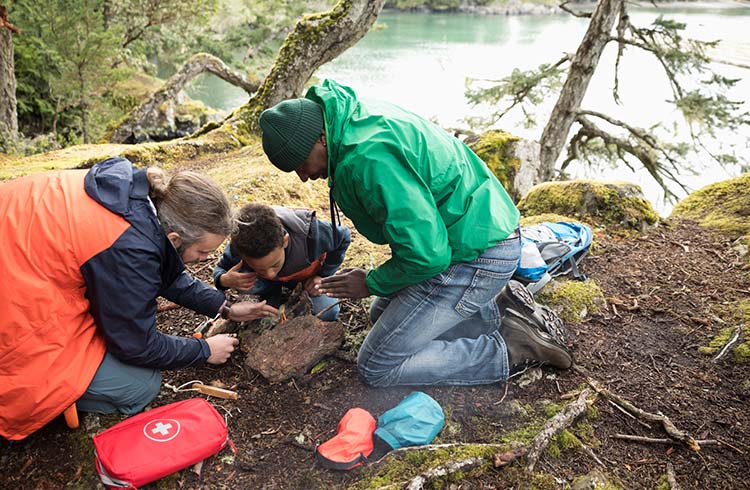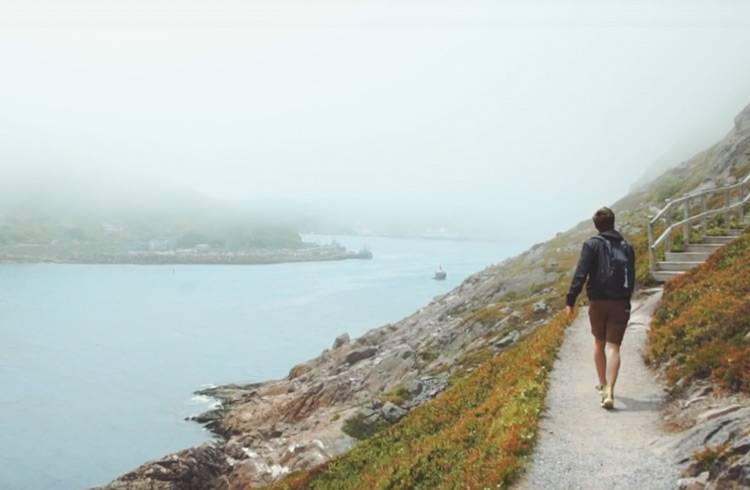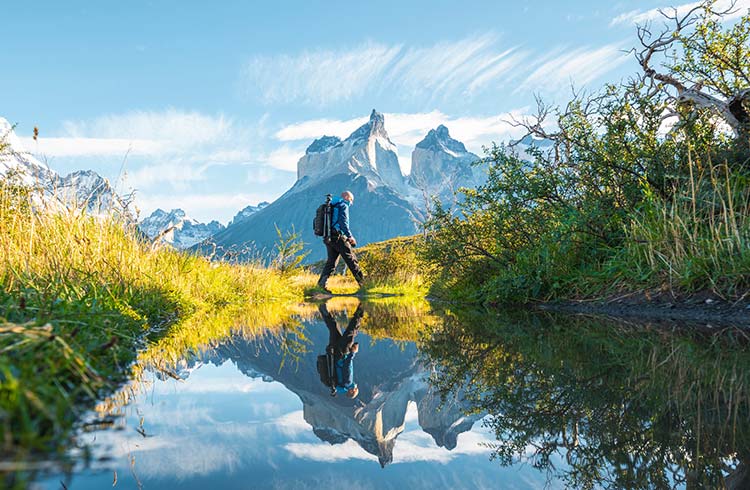Hiking Packing List: What Should Be in Your Safety Kit?
From what to pack to how to stay in contact, here's what should be on your hiking gear list, and how to be prepared for a hiking adventure.
 Photo © Getty Images/Hero Images
Photo © Getty Images/Hero Images
Hiking holidays are a great way to spend your time off, and hiking new trails or exploring areas you've never visited before is part of the excitement. Often, people do a bit of hiking while they are packing their trip with other activities and do not specifically plan for their outdoor adventure, ultimately forgetting to pack essential hiking equipment. Shore excursions from cruise ships in the Caribbean are a prime example of this.
When you're in an unfamiliar area and have set off on foot unprepared (often in a hurry), the odds will be against you. Next time you head out on an outdoor adventure, here's a list on the essential safety items you must put in your daypack before you go hiking.
Signaling device
- Phone/mobile/satellite phone
- Mirror
- Whistle
Being able to contact someone for help is probably the most important thing in an outdoor emergency. Popularity of mobile phones has helped adventurers be rescued in a timely manner. Make sure your device from home works in your new location and be prepared that you may not have a signal when outdoors. Consider renting a local phone, for use during your trip. Satellite phones can also be rented and provide connectivity, even in remote locations.
Mirrors and whistles serve to attract attention and are very reliable. They do not run out of battery or lose signal. Mirrors can reflect light to passing planes or other people, and whistles work well to draw attention, too! Both are very lightweight and portable.
Extra Food
- Enough for one to two days
- Energy bars
- Comfort food
Most day hikes are just that, hikes that are over in one day. Spending the night outside only happens if there is a problem, but you should be prepared for it. Healthy people can generally go several weeks without food, but why try it!? Carrying some extra food, in case you have to sleep out, can make a big difference for comfort and morale. I am not saying to carry a full buffet, but a few energy bars are lightweight and can make you more comfy waiting for help or while your figure your plan out.
Extra water
- Carry extra supplies of water
- Purification method (potable aqua tablets, filter, boiling)
Humans may be able to go a week or two without food, but drinkable water is needed much more often. Death from dehydration can occur in several days. Carrying extra water is a vital survival tool and should not be taken lightly. Anticipate your water needs, per person, for your adventure and plan ahead. This can be carrying extra water or carrying a method to purify water found in the area. Plan to spend a night outside and consider that you'll need to drink water during this time.
Firestarter
- Lighter
- Flint and striker
- Matches
The ability to make fire is something anybody who leaves a paved road needs to have. Fire can be a great signal, especially at night. Smoke from a fire can be a daytime signal, as well. Not only does fire provide warmth, but it serves as a tremendous moral booster and makes the difference between an uncomfortable night outside and a potentially life-threatening event. Fuel can be found in the area or brought in your pack. A few cotton balls or some tissue make perfect fuel sources to help get wood burning and take up a minimal amount of space.
Multi-tool and a pocket knife
- Leatherman
- Swiss knife
A good knife is an incredibly valuable tool. Multi-tools contain screwdrivers, files and many other accessories that can all have application if you find yourself needing to wait for a rescue or have to spend an unexpected night outside. A good knife can help with first aid, shelter construction, food preparation and countless other chores that help improve your situation.
Leave your itinerary with a responsible person
- Where you are going
- Which route you are planning
- When you will be home
- Who to call if you are not back by a pre-set date/time
Letting somebody you trust know where you are going and when you are due back should be second nature to outdoor adventurers. The person you discuss your plans with doesn't even have to be in the same country, as long as they know the details of your trip. Make sure they know where you are going and when you are due back. If you have not let them know that you've safely made it back, they should begin looking for you or arranging for help to find you. Hotel employees, local ranger stations or friends/family back home are all good resources. Ensure they have some contact information for your area and police stations are often good places to start. Finally, when you do get back form your adventure, make sure to let them know so they don't activate a search party!
Extra layer of warmth
- Fleece jacket
- Hat
- Gloves
Even in the hottest climates, one should be prepared for a drop in temperature, especially at night. Changes in weather can come quickly and having an extra layer of warmth can help fight off hypothermia as well as make you a bit more comfortable. A large amount of body heat is lost through the head and simply wearing a hat can help keep warm. A fleece jacket and hat take little extra space but can make a night outside a lot more tolerable.
Pack a map for better navigation
- Map and compass
- GPS
- Know how to use them
Getting lost is a common occurrence and I am frequently "lost" even at my home trails. Relying on memory is difficult and next to impossible in an area you've never been before. Carrying a map and compass or GPS is a good idea and may help you find your way back to safety. However, simply carrying them does no good, unless you know how to use them. Basic info on how to use a GPS can be found here. A map and compass do not run out of batteries and never have "no signal". A compass requires a different skill than GPS and you can get the basics on compass navigation here. Practice your navigation skills at home, before you get to the trails!
Basic first aid kit
- Ibuprofen/pain reliever
- Antihistamine
- Antiseptic towlettes
- Bandages/gauze
- Space blanket
- Personal medication
Every person going on an adventure should carry a first aid kit. What you choose to carry in your kit is another matter, but everybody should carry a first aid kit, of some sort. A basic kit should include the above items. Many commercial kits are available, at most outdoor stores. Also, the kit does no good if you leave it at home!
Portable shelter
- Space blanket
- Tarp
- Plastic trash bag
Carrying some basic equipment that can be fashioned into a shelter is an easy way to minimize discomfort and risk outdoors. Being prepared to stay overnight, even if you are only being out a few hours is a good way to help survive an emergency on the trails. Several items, listed above, can be fashioned into an emergency shelter, if the need arises. Shelter can keep you dry, keep you warm and even help signal for help. Taking a few extra minutes to drop one of these items in your pack is a great idea.
Even those going off on a "day hike" should be prepared to spend the night outdoors, in the event of an unforeseen emergency. Carrying a few extra items in your pack can make this night outside more comfortable and lessen the risk of serious injury or death. These items can help you find your way back home, signal for help and let you take care of yourself and others, should the need arise. I hope you never have to use any of them, but at least you'll be prepared if you do have an unplanned emergency outdoors.
The number one thing to pack before you go hiking
While hiking overseas, you should always remember to pack travel insurance. Get a quote for your hiking adventure below!
Related articles
Simple and flexible travel insurance
You can buy at home or while traveling, and claim online from anywhere in the world. With 150+ adventure activities covered and 24/7 emergency assistance.
Get a quote

No Comments